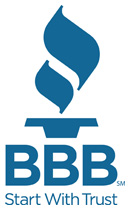 Nashville, TN – Social media is rife with misleading ads, but sometimes con artists go a step further. They create social media accounts, build (or buy) a following, and con consumers into paying big bucks for products or services they never plan to deliver. Recently, BBB Scam Tracker has seen an increase in reports of social media scammers selling (allegedly) high-end wigs.
Nashville, TN – Social media is rife with misleading ads, but sometimes con artists go a step further. They create social media accounts, build (or buy) a following, and con consumers into paying big bucks for products or services they never plan to deliver. Recently, BBB Scam Tracker has seen an increase in reports of social media scammers selling (allegedly) high-end wigs.
You find a social media account, typically on Instagram, that features professional-looking photos and gorgeous wigs. The “influencer” claims to be a professional stylist who works with celebrities and seems to have a substantial following.
You contact the seller and they offer you a deal on the wig you showed interest in.
When you accept, they ask for payment through a digital wallet app. After you’ve sent the money, the seller promises to deliver the wig by a certain date.
The scammer may ask for extra money to make your wig just right.
When your wig arrives, it looks nothing like the one in the photos! Or you might never receive any wig at all. When you try to contact the seller to find out what happened, they claim they will deliver it soon, or they simply deny the sale ever happened. Either way, if you press for a refund the seller will block you and disappear.
One victim told BBB Scam Tracker that she spent $900 on a wig that never arrived. After trying to get a refund, the Instagram influencer she purchased from blocked her—as well as posted her home address.
“She told me she’s blocking me permanently and she’ll be in touch via her attorney. Never did I hear anything from any law practice. And never did I get my money back,” the victim reported. “To make the situation worse, the lady started posting my private HOME address on her public Instagram account for everyone to see. I trusted her with my sensitive information and she publicly leaked it!”
Spot a social media sales scam:
- Take a closer look at the seller’s social media profile. Legitimate sellers will post frequently, respond quickly, and clearly display and describe the services they provide. Fake social media accounts lack original content, only give generic introductions, and don’t have much genuine engagement.
- Read their post comments. If a seller is less than reputable, you may find comments that point out poor customer service or outright scams. Keep in mind though that sellers can delete or hide bad comments, so a lack of negative comments doesn’t always mean a business is in good standing.
- Check for clear sales protocols. Reputable businesses will have a clearly laid out process for making a sale and delivering a product. In addition, sellers should give you written confirmation of your purchase and detailed instructions on what to do if you need to cancel your order or request a refund. If a seller’s information on payment or delivery is vague or if they can’t offer you a receipt for your purchase, shop somewhere else.
- Use safe payment methods. It’s always best to pay for products and services with your credit card. That way, if anything goes awry, you can contest the charges. If a seller insists you pay via a digital app, especially if they are adamant that you should label the money as a payment made to friends or family, think twice. Circumventing normal payment methods is a common tactic scammers use to get away with your money.
For More Information
Learn more about avoiding scam social media ads when shopping online. Read about how to spot a phony social media account.
For more advice, read BBB’s tips on online shopping. If you’ve spotted a scam (whether or not you’ve lost money), report it to BBB.org/ScamTracker. Your report can help others avoid falling victim to scams. Find more information about scams and how to avoid them at BBB.org/AvoidScams.




